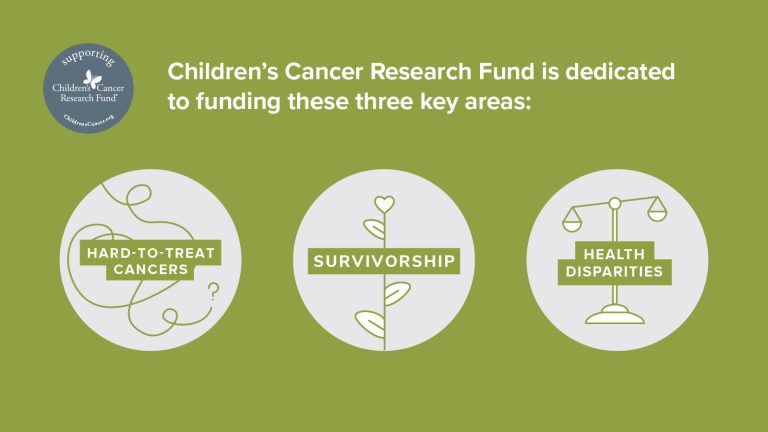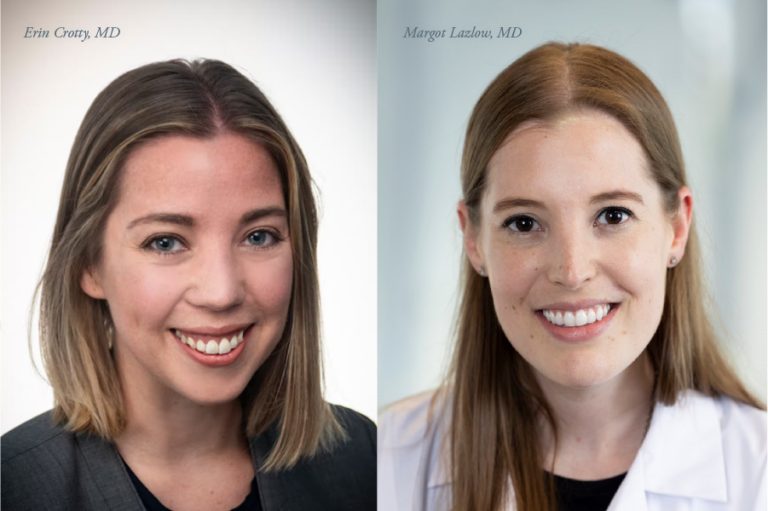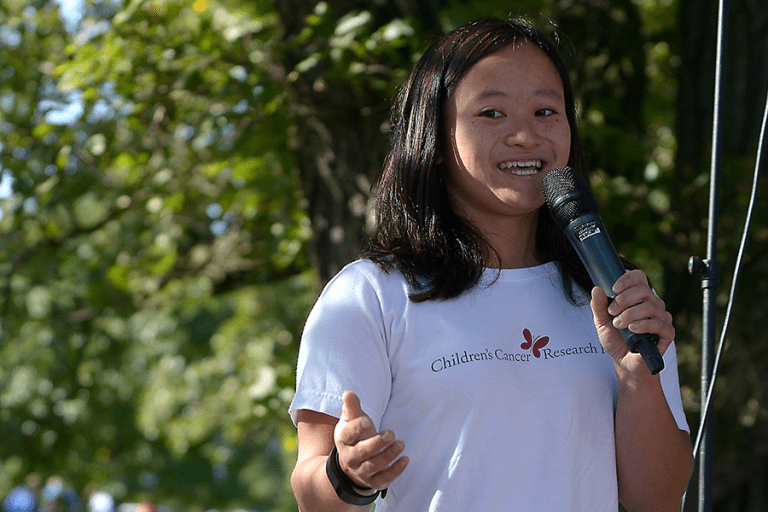There are plenty of myths surrounding childhood cancer research – how it works, how fast it moves, and how much funding it needs to move forward. CCRF wants to bust some of these myths so you can have a better understanding of childhood cancer, the researchers searching for better treatments, and the progress your donation can make possible.
Myth: Childhood cancer research is incredibly slow.
Busted: Researchers are making new discoveries about childhood cancer and treatments used fight it constantly. In fact, with some childhood cancers, like osteosarcoma, we’ve seen more meaningful advances in research in the past five years than we saw in the previous 30 years. When researchers have the funding they need to move their great ideas forward, they can make advancements more quickly than we ever imagined.
Myth: There’s just one single ‘cure’ for childhood cancer.
Busted: There are many different types of cancer, and each of those cancers requires different kinds of treatment. It is true that certain kinds of therapies, like cell, gene and immunotherapy, could unlock better treatments for many different types of cancers, but treatment will always differ from one disease to another and from one patient to another.
Myth: Childhood cancer is the same as adult cancer.
Busted: We know many adult cancers are strongly linked to lifestyle or environmental risk factors, but the causes of childhood cancer are largely unknown. Many childhood cancers are the result of DNA changes in cells that happen when the child is very young, sometimes even before they are born. This means childhood cancers can’t be prevented by limiting environmental risk factors the way many adult cancers can. We need to fund researchers who study childhood cancers specifically, so we can learn more about causes and potential treatments.
Myth: Cancer researchers keep their findings separate from one another and don’t work together.
Busted: Childhood cancer researchers are extremely collaborative, more even than adult cancer researchers. When one researcher is successful, they move the whole field forward, allowing more kids to get the kinds of lifesaving treatments they need.
Myth: Childhood cancer is rare - therefore, research into it doesn’t need as much funding.
Busted: Because there are so many different kinds of childhood cancers, nearly all of them are considered ‘rare,’ but childhood cancer is a widespread, pervasive problem. Pediatric cancer is the leading cause of death by disease in children. Every school day, 1 in 46 kids are diagnosed with cancer. Despite this, childhood cancer research funding accounts for just 4 percent of all federal funding for cancer research. Because of this, childhood cancer researchers depend heavily on the generosity of donors to fund their work.
Support Childhood Cancer Research
Researchers with great ideas sometimes don't have enough funding to move forward. Your gift ensures that researchers have the resources they need to develop better, safer treatments for kids with cancer.




